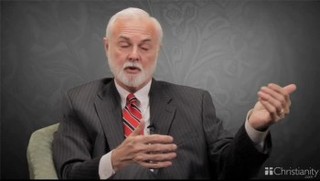- Recent Translations
- All Translations
Matthew 3:1
Share
Settings
John the Baptist Prepares the Way
1 In those days John the Baptist came, preaching in the wilderness of JudeaMatthew 3:1 in Other Translations
Matthew 3:1 Meaning and Commentary
In those days came John the Baptist
The Evangelist having given an account of the genealogy and birth of Christ; of the coming of the wise men from the east to him; of his preservation from Herod's bloody design against him, when all the infants at Bethlehem were slain; of the flight of Joseph with Mary and Jesus into Egypt, and of their return from thence, and settlement in Nazareth, where Christ continued till near the time of his baptism, and entrance on his public ministry; proceeds to give a brief relation of John, the harbinger and forerunner of Christ, and the administrator of baptism to him: and he describes him by his name John, in Hebrew (Nnxwy) , "Jochanan", which signifies "gracious", or "the grace of the Lord", or "the Lord has given grace"; which agrees with him, both as a good man, on whom the Lord had bestowed much grace, and as a preacher, whose business it was to publish the grace of God in Christ, ( Luke 16:16 ) . This name was given him by an angel before his conception, and by his parents at his birth, contrary to the mind of their relations and neighbours, ( Luke 1:13-60 Luke 1:63 ) . He is called by some of the Jewish writers F13, John the "high priest"; his father Zacharias was a priest of the course of Abia, and he might succeed him therein, and be the head of that course, and for that reason be called a "high" or "chief priest"; as we find such were called, who were the principal among the priests, as were those who were chosen into the sanhedrim, or were the heads of these courses; and therefore we read of many chief priests, ( Matthew 2:4 ) . From his being the first administrator of the ordinance of baptism, he is called John the Baptist; and this was a well known title and character of him. Josephus F14 calls him "John", who is surnamed (o baptisthv) , "the Baptist"; and Ben Gorion having spoken of him, says F15, this is that John who (hlybj hve) , "made", instituted, or practised "baptism"; and which, by the way, shows that this was not in use among the Jews before, but that John was the first practiser this way. He is described by his work and office as a preacher, he "came" or "was preaching" the doctrines of repentance and baptism; he published and declared that the kingdom of the Messiah was at hand, that he would quickly be revealed; and exhorted the people to believe on him, which should come after him. The place where he preached is mentioned,
in the wilderness of Judea;
not that he preached to trees and to the wild beasts of the desert; for the wilderness of Judea was an habitable place, and had in it many cities, towns, and villages, in which we must suppose John came preaching, at least to persons which came out from thence. There were in Joshua's time six cities in this wilderness, namely Betharabah, Middin, and Secacah, and Nibshan, and the city of Salt, and Engedi, ( Joshua 15:61 Joshua 15:62 ) . Mention is made in the Talmud F16 of this wilderness of Judea, as distinct from the land of Israel, when the doctors say, that
``they do not bring up small cattle in the land of Israel, but they bring them up (hdwhybv rbdmb) , "in the wilderness which is in Judea".''The Jews have an observation F17 of many things coming from the wilderness;
``the law, they say, came from the wilderness; the tabernacle from the wilderness; the sanhedrim from the wilderness; the priesthood from the wilderness; the office of the Levites from the wilderness; the kingdom from the wilderness; and all the good gifts which God gave to Israel were from the wilderness.''So John came preaching here, and Christ was tempted here. The time of his appearance and preaching was in those days: not when Christ was newly born; or when the wise men paid their adoration to him; or when Herod slew the infants; or when he was just dead, and Archelaus reigned in his room; or when Christ first went to Nazareth; though it was whilst he dwelt there as a private person; but when John was about thirty years of age, and Christ was near unto it, ( Luke 3:23 ) an age in which ecclesiastical persons entered into service, ( Numbers 4:3 ) . It was indeed, as Luke says, ( Luke 3:1 ) in the "fifteenth" year of the reign of Tiberius Caesar; Pontius Pilate being governor of Judea; and Herod being tetrarch of Galilee; and his brother Philip tetrarch of Iturea; and of the region of Trachonitis; and Lysanias, the tetrarch of Abilene; Annas and Caiaphas being the high priests.
F13 Ganz. Tzemach David, par. 1. fol. 25. 2. Chronicon Regum, fol. 54. 4.
F14 Antiq. l. 18. c. 7.
F15 L. 5. c. 45.
F16 T. Bab. Bava Kama, fol, 79. 9. 2.
F17 Shirhashirim Rabba, fol. 13. 3.
Matthew 3:1 In-Context
Videos for Matthew 3:1
Cross References 1
-
1.
ver 13,14;
Matthew 9:14 ;Matthew 11:2-14 ;Matthew 14:1-12 ;Lk 1:13,57-66 ;Luke 3:2-19 ;Acts 19:3,4
